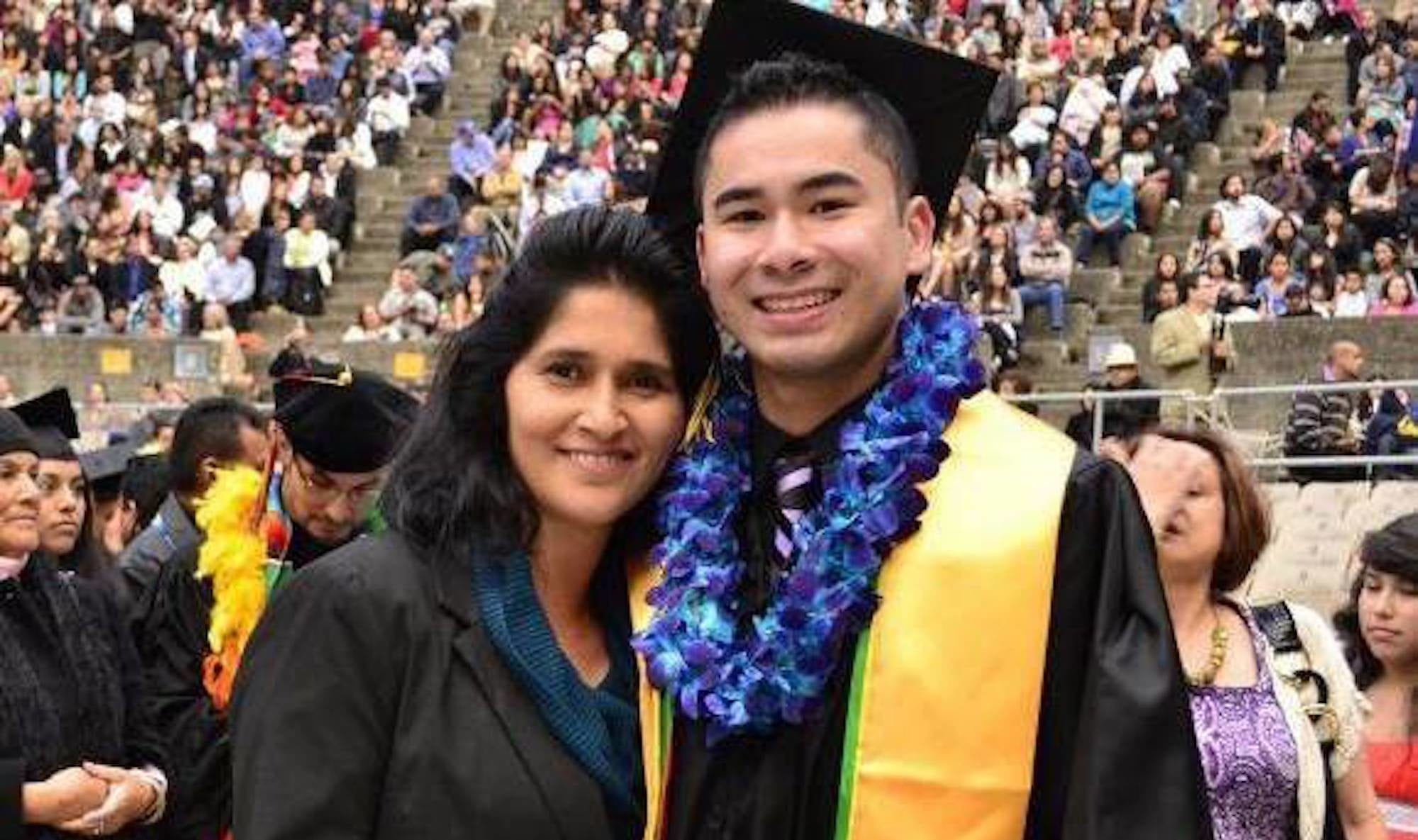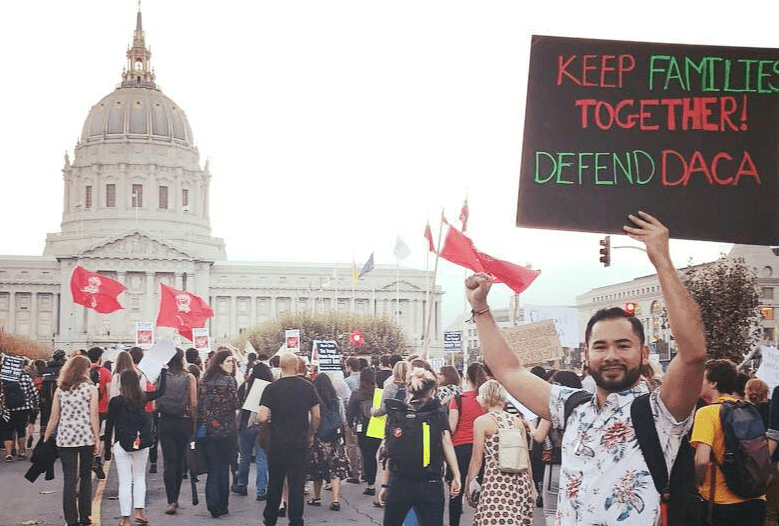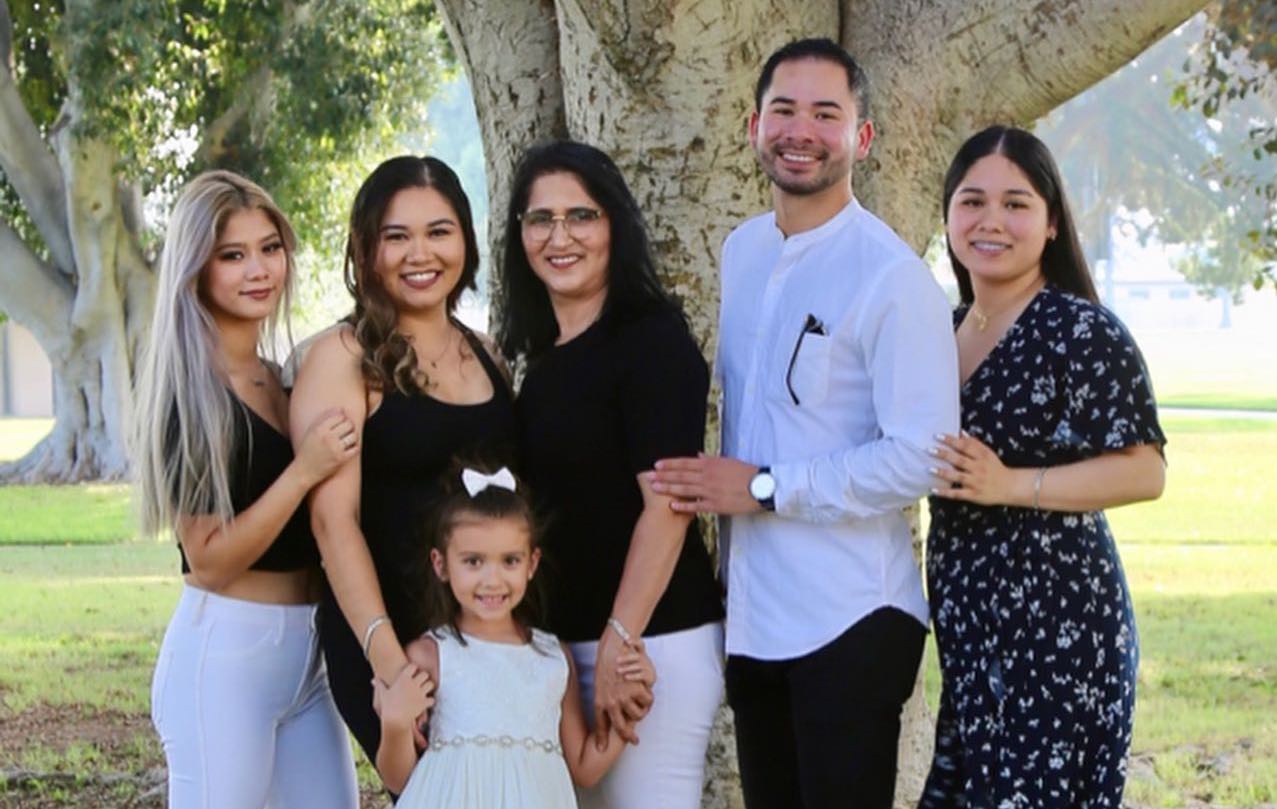Haas Voices is a new first-person series that highlights the lived experiences of members of the Berkeley Haas community. Our first perspective is by “double Bear” Luis Alejandro Liang, BS 12, EWMBA 23, who is among the approximately 644,000 Deferred Action for Childhood Arrivals (DACA) recipients granted special immigration status because they were brought to the U.S. as children. Liang’s path to Berkeley was challenging—he’s been accepted three times. He shares his story below.

Many times over these past four years, I’ve woken up in fear. Fear of deportation. Fear about what was going to happen to our community. Fear that ICE could knock on my door and take me away.
I grew up in Sinaloa on the Pacific coast of Mexico. I’m half Chinese, half Mexican. I grew up multicultural—going to Catholic church on Sundays but celebrating Chinese New Year. I started helping my family in their Chinese restaurant when I was six years old. I was surrounded by entrepreneurs.
When I was 14, my mom moved me and my three little sisters to Orange County because she wanted to provide us with better chances. I entered high school as a sophomore without knowing any English. It was a culture shock, but I wanted to honor my mom’s sacrifices by excelling academically. I was put back in algebra, even though I was taking calculus when we left Mexico. As a senior, I got into a couple of UCs, but my first scholarship was taken away because I didn’t have a social security number.

So I decided to go to Fullerton College. In high school, I had been really shy because I was new, so I didn’t know anything about things like AP classes or honor society. When I got to community college, I decided to get involved. I joined the Puente Program, which is mostly for Latino students to help get us into four-year colleges. I was really active, working long days because I was also a tutor. The Puente Program gave us a tour of all the UCs. That was the first time that I actually went to visit the campuses.
When I visited Berkeley I fell in love. I remember the Campanile, Sather Gate and thought of all the famous people who went there, including Mexican presidents.
I knew that I wanted to study business. I also knew that I was gay by that time too, and that San Francisco was LGBTQ friendly. I knew I could be myself at Berkeley.
My dream came true when I got accepted to Haas as a junior and received the prestigious Regents’ and Chancellors’ Scholarship, given to the top 2% of students. But when I went to the financial aid office, they again took away my scholarship because I still didn’t have a social security number. I was crying, and the woman who broke the news to me was crying too.
They again took away my scholarship because I still didn’t have a social security number. I was crying, and the woman who broke the news to me was crying too.
I remember seeing the César E. Chávez Student Center in front of me and I just went in and I started walking around. I thought, “If this is César Chávez’s building, there’s going to be a Latino person here who can help me.” I ended up meeting Lupe Gallegos-Diaz, director of the Chicano Department at Berkeley. Lupe became a support for me when I returned to community college more determined to achieve my dreams.
I became more politically active, creating the Fullerton College Dream Team to support undocumented students. In 2010, I got into Berkeley Haas for the 2nd time, having raised $70,000 to cover my tuition.
When I graduated, I was a first-generation Berkeley Haas grad deemed ineligible to work in the U.S. I felt lost, but by then I knew I wasn’t alone. My life took a turn when President Obama passed DACA in 2012, extending opportunities previously unavailable to those of us brought to the U.S. as children. A door of possibilities opened up and led me to a job at Salesforce, helping non-profit organizations leverage technology to amplify their impact.
My life took a turn when President Obama passed DACA in 2012.
Being the first DACA employee at Salesforce motivated me to use my voice in a space where underrepresented groups lack a sense of inclusion. I worked with the chief equality officer on a podcast about diversity and inclusion, served on the leadership board of multiple employee resource groups, and came out of the shadows by sharing my story on a video called “Proudly Me.”

In 2013, another dream came true when I traveled to the White House and met President Obama after I received the LGBT DREAMers Courage Award, which honors individuals who have shown courage and perseverance in the face of injustice.
Still focused on social impact at my current job at Twilio, I decided it was time to go back to school for an MBA. I applied to the Berkeley Haas Evening and Weekend MBA program and got into my dream university for the third time, starting last fall. My focus is to become a chief social impact officer and a social leader at a company. In my classes, surrounded by fellow Type As, I’m learning things that I put into practice at my job. I love the community and I can’t wait to get back to campus.

Growing up, I thought that life would change the day I could finally get my residency—that something would change inside of me and that things were going to be better. But as the years passed, thinking that way made me believe that I was incomplete and something was missing. But being paperless doesn’t make us powerless. We have purpose and an eagerness to give back, by creating communities, by finding the power in helping people. I now find so much joy in helping other “Dreamers” get into school and finding their dream jobs.
But being paperless doesn’t make us powerless. We have purpose and an eagerness to give back, by creating communities, by finding the power in helping people.
There are 11 million undocumented immigrants living in the U.S., not by choice, but because we needed to survive. I hope to highlight the narrative of joy, love, and pride that comes from living a life dedicated to serving our families’ and communities’ dreams.”
Luis Liang, an account manager in social impact at communications company Twilio, is passionate about advocating for human rights and supporting Latinx, LGBTQ, and undocumented immigrant communities. Liang has served as a board member for the Association of Latino Professionals for America, The Greenlining Institute Alumni Association, and on several corporate Employee Resources Groups.